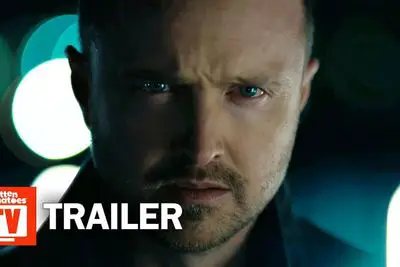HBO Says "Westworld" Is Too Complex for Casual Fans, But It Might Just Be Bad
What makes a show "not for casual viewers," anyway?

HBO wants to be clear: Westworld Season 3 won't be your daddy's Westworld.
It won't be the Westworld you know, either. HBO's official trailer for the show's newest season, subtitled "The New World," promises a vastly different show than the one viewers originally tuned into during 2016.
Gone are the days of exploring the show's titular Wild West-themed amusement park with young and old William (Jimmi Simpson/Ed Harris), and watching android hosts Dolores, Maeve, and Bernard learn the truth of their existence. Season 3 will finally bring those characters outside the futuristic amusement park company Delos' control after the violent host uprising that dominated the show's first 20 episodes. At last, we'll enter the show's futuristic "real" world, but unless executive producers Jonathan Nolan and Lisa Joy have changed their tune, viewers are in for another confusing season of a series that HBO has branded as "not for casual viewers."
That identifier stems from criticism of Westworld's majorly complicated timeline, which unofficially spans nearly 40 years and is told far out of chronological order throughout its first two seasons. In April 2018, Variety wrote that the production "seems to have too much faith viewers will be willing to absorb storylines that can border on the incomprehensible," and doubted whether the show could ever reach Game of Thrones-levels of popularity. When company president Casey Bloys was pressed on this issue in July of that year, he disagreed that criticism of the show was "widespread" and declared that the series "requires your attention."
It's one thing to create a niche piece of media; it's another entirely for HBO to deflect criticism of a show that reportedly cost $100 million to produce and mark it as something a "casual viewer" may not want to engage with.
What makes a show or film "not for casual viewers," anyway? Is it non-linear storytelling? A large ensemble cast? Or is it defined by the culture that its fans create? These days, we have a whole genre of YouTube videos that "explain" entire seasons of shows just so audiences can remember what they already watched in the first place before diving back in. Spotify lists over a dozen Westworld-dedicated podcasts on its streaming platform. The show's fan community on Reddit boasts 675k subscribers ahead of the new season.
Westworld is not the first prestige television show to delve into multiple timelines or utilize a large ensemble cast, though. It's not even unique among recent HBO programming. Fans didn't balk at Thrones' initially deep barrier to entry. They indulged in Westeros' detailed fictional history, allowing HBO to create a cultural and ratings juggernaut out of George R.R. Martin's epic fantasy series. The network didn't simply wave off a show with over 50 main characters as too hard for "casual viewers" to understand—and those "casual viewers" attended watch parties and trivia nights across the country to celebrate the show's final season last spring.
Years before Thrones, ABC's Lost mired itself in multiple timelines and held perplexing mysteries over viewers' heads during its six-season run on basic cable to massive critical and popular success. It juggled more than two dozen characters and garnered an insatiable audience that precluded both Westworld and Thrones—all without any pre-existing source material. Lost raked in 16 million viewers on average in its first season and reached 14 million for its series finale six years later. For all the divisive opinions on its conclusion, nobody could claim the show was only for a "hardcore" television audience.
Perhaps better examples of media made "not for casual viewers" lies in film, wherein certain movies have made a strong case for adding extra homework on top of a simple viewing.
2006's Southland Tales, written and directed by Richard Kelly (of Donnie Darko fame), was preceded by a three-part series of graphic novels that told the first half of the film's story. Yes, viewers needed to read three graphic novels just to begin the movie on even footing. It sounds like a crazy marketing strategy at first, but then just over a decade later, Disney and Lucasfilm started employing similar tactics concerning Star Wars. Novels, comic books, and television shows now create backstories for Disney-era characters like Poe Dameron and fill in major gaps between the sequel trilogy films.
Still, this kind of franchise expansion doesn't always necessitate that you consume all Star Wars-related media. You don't need to plow through Rebels just to understand the original trilogy, but doing so provides plot details that might be helpful to know before watching The Rise of Skywalker. Nobody at Lucasfilm would claim Star Wars "isn't for casual viewers," though, and Episode IX's 86 percent audience score on RottenTomatoes seems to indicate casual fans found no problem with it even without the extra information available in ancillary spin-offs.